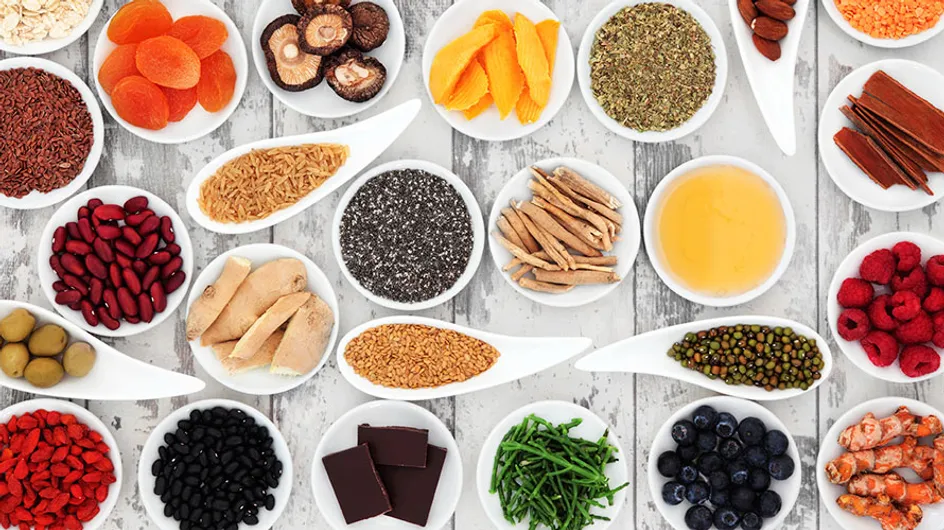Did you know half a million Britons have coeliac disease but don't even know it? Yep, that's right, HALF A MIL.
Coeliac disease is an autoimmune disease caused by an intolerance to the protein, gluten. Those who suffer from it have a difficult time digesting foods containing gluten such as wheat, barely and rye, and if they do the consequences can be ugly.
Symptoms of the disease can include diarrhoea, constipation, nausea, vomiting, abdominal pain and stomach cramping, gas and bloating, constant fatigue and regular mouth ulcers.
Coeliac UK’s Food Policy Lead, Kathryn Miller says, "For people with coeliac disease, eating gluten causes damage to the gut lining which results in a range of symptoms and nutritional deficiencies.
"But when gluten is removed from the diet the gut heals allowing nutrients to be absorbed as normal. Once on a gluten-free diet the symptoms improve within a couple of weeks but other symptoms like fatigue can take longer to resolve".
Unsurprisingly the transition into a gluten free lifestyle can be hard to stomach but unfortunately it's the only treatment available for the disease. So in the name of health and your sanity, we decided to round up our top 10 tips to help you through the challenge. Here's what to keep in mind...
1. Download a gluten free app
Check out Coeliac UK's Gluten-Free On The Move app - it’s free and has loads of sources to help you along the way. It also has a barcode scanner that lets you check if they have the product listed in their Food & Drink Directory. So whether you’re on the go, travelling or just need some gluten free assistance, an app like this one can be there for you whenever you need it.
2. Learn how to read food labels
All products in the UK are protected by the European labelling law which means checking the labels for gluten couldn’t be easier. Check the back of the list to see what’s included. No matter how little is in it, by law it must state it in the ingredient list. Look out for things like wheat, rye, barley, oats, spelt and Kamut. PS it’s usually in bold too!
3. Try gluten free alternatives
When you’re suddenly not able to indulge in foods you’d normally eat, it cab be a bit of a shock, but don’t worry there ARE gluten free alternatives for almost anything you fancy.
Chief Executive of Coeliac UK, Sarah Sleet says, “Gluten free products are a top priority for us. We're working closely with both the manufacturing and catering industries to help them deliver good quality gluten-free choices for people with coeliac disease.” So start getting familiar with your local shops’ gluten free section. Our favourite buy? Walkers Gluten Free Shortbread! A biscuit's a biscuit, right?
4. Enjoy the foods you CAN eat
Alternatively, going gluten free really isn’t the end of the world. You can still eat as much veg, fruits, fish, cheese, poultry and eggs as you want! Imagine a world without cheese and eggs? That's all you need really.
5. Discover the best places to eat gluten free
Being gluten free doesn’t mean you’re restricted to home cooked dinners! Coeliac UK have a great venue guide of places that are all gluten friendly, so no more awkward dinners out with friends and family. Phew.
6. Host dinner parties
One of the best ways to cut out the stress of having to tell friends you can’t eat any gluten is by hosting dinner parties yourself! This way you can have piece of mind that everything is gluten free and not even have to worry about cross contamination. Stress, sorted.
7. Make it fun!
Not being able to eat gluten can be a bit annoying at first, but instead of seeing it in a negative light why not consider it a new exciting challenge for yourself? Experiment in the kitchen and try some new gluten free alternatives. Things like quinoa porridge, lettuce wraps and almond meal flour can do amazing things for your meal. Why not buy a gluten free recipe book? There are tons to choose from.
8. Be weary of consuming gluten free products...
...every single day. Yes, it’s a great way to get tasty substitutes for the foods you enjoy eating but research has found that it could in fact have a detrimental effect on your health. That is, if you're mainly consuming packaged goods (which are always more nutrient deficient than fresh foods). Eat as much fresh foods as you can!
9. Beware of cross contamination
Even a wee crumb can cause a flare up in someone with coeliac disease, so it’s SO important to be weary at all times. Look after yourself and speak up if you need to. If you go to the deli counter or bakery make sure to ask for the tools to be cleaned beforehand.
If you’re family aren't gluten free eaters, then make sure to buy extras for your food, such as a toaster or extra condiment containers to prevent a cheeky double dip! Hey, you’re only human. These extra measures are a pain in the butt, but they can be so helpful once done. For more cross contamination info click here.
10. Know your alcohol
It may not be obvious at first but liquids CAN contain gluten in them. So avoid beer, lager, ales and stout at all costs. There are plenty of gluten free options though. Think sherry, spirits, port and liquors. Get to know your favourites and if you really enjoy a beer, ask if they have a gluten free one! They do exist.
Do you have any tips for taking the gluten free plunge? Tweet us @sofeminineUK!
You might also like:
Muffin Tops Begone! Everything You Need To Know About The Wheat Belly Diet
10 Lifestyle Hacks On How To Strengthen Your Immune System
Increased Energy? Longer Lifespan? Everything You Need To know About The Ayurvedic Diet

















